
How to Buy Crypto
Buying cryptocurrency has become increasingly accessible through various platforms that provide streamlined processes for purchasing digital assets like Bitcoin and Ethereum. This comprehensive guide covers everything from selecting reputable exchanges and payment methods to understanding the nuances of centralized and decentralized trade, self-custody essentials, and the legal and tax implications of crypto transactions.
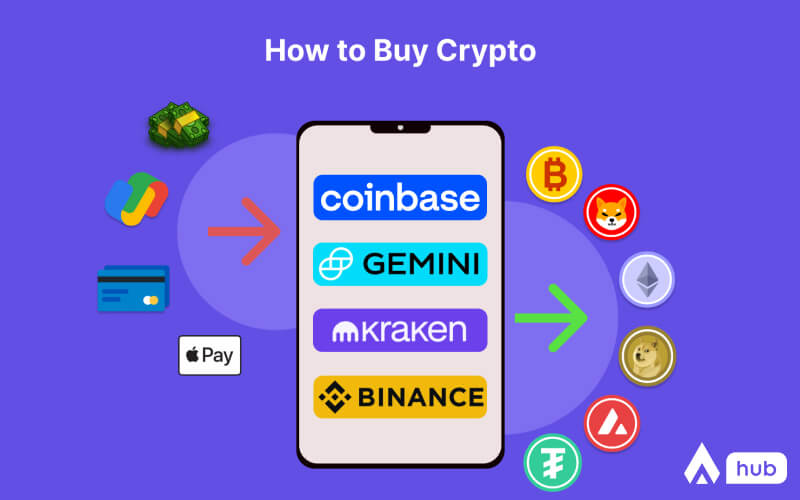
Steps to Buy Crypto Instantly
Buying crypto has never been easier, thanks to streamlined processes on various platforms. To buy crypto instantly, start by selecting a reputable crypto platform.
Create an account, verify your identity, and connect your preferred method of payment.
Once your account is set up and your method of payment is linked, you can choose the popular cryptocurrencies you wish to buy, such as Bitcoin (BTC) or Ethereum (ETH).
Confirm the transaction details and execute the purchase.
The crypto will be available in your cryptocurrency wallet almost immediately.
Buying Crypto with Fiat Currency
To buy crypto with traditional currency, you first need to choose a reliable cryptocurrency exchange that supports fiat deposits. After setting up your account and linking it with your bank account or debit card, navigate to the deposit section and transfer funds. Once the centralized currency is deposited, you can use it to buy crypto like Bitcoin Cash (BCH) or other popular digital currencies. The transaction will convert your currency into the desired crypto, and the transaction will be reflected in your account. To learn more about choosing banks that are friendly to crypto transactions, check out our crypto-friendly banks blog.
Using Bank Transfers, Debit Cards, and Credit Cards
Choose the payment method that aligns with your preferences and transaction needs. Ensure the exchange supports your chosen method of payment and check for any associated fees or processing times.
Bank Transfers:
Often the most cost-effective method for larger purchases.
May take 1-5 business days to process.
Generally have higher limits than card payments.
Debit Cards:
Offer instant purchases.
May have lower fees compared to credit cards.
Usually have daily or weekly purchase limits.
Credit Cards:
Provide quick and convenient purchases using your Visa card.
Often incur higher fees (3-5% is common).
Some card issuers may treat crypto purchases as cash advances, resulting in additional fees and interest.
Payment Methods: Apple Pay, Google Pay, and More
Modern payment methods offer additional convenience:
Apple Pay
Apple Pay is a popular payment option that offers a seamless and secure way to buy crypto. It leverages biometric authentication and encryption to protect your payment information, making crypto purchases both quick and safe. Many exchanges, like Coinbase, accept Apple Pay, providing a convenient way to buy crypto directly from your iPhone.
Google Pay
Google Pay allows users to buy crypto with just a few taps on their Android devices. This payment method integrates with your existing Google account, offering a smooth user experience and enhanced security. It’s widely accepted on major exchanges, such as Coinbase, for US customers, and it simplifies buying cryptocurrency with instant processing.
PayPal
PayPal provides a familiar and trusted payment platform to buy crypto. It offers a straightforward interface to buy crypto and can be linked directly to your crypto exchange account. PayPal supports various cryptocurrencies, and its integration with exchanges like Coinbase allows for quick and easy buying of cryptocurrency.
Other Digital Wallets
In addition to Apple Pay, Google Pay, and PayPal, many other digital wallets are accepted to buy crypto on trading platform. These include platforms like Skrill and Neteller, which offer additional options for traders looking for alternative payment method. These wallets can provide added flexibility and convenience, depending on the exchange’s support.
Centralized Exchanges
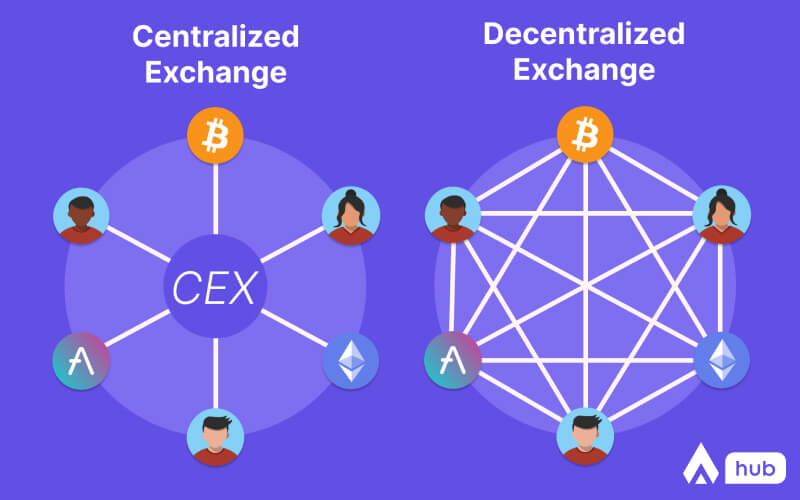
What Are Centralized Exchanges?
Centralized exchanges (CEXs) are platforms that facilitate the to trade crypto by acting as intermediaries between buyers and sellers. These exchanges operate under a single organization and manage the order book, matching buy & sell orders, and holding users’ funds in their custody. They provide a user-friendly interface and various features for trade, but traders must trust the transaction to manage their crypto securely and handle it accurately.
Choosing a Crypto Exchange
When selecting a crypto trading platform, consider factors such as security, regulatory compliance, user interface, and available cryptocurrencies. Look for platforms with industry-leading security measures, such as encryption and two-factor authentication (2FA). Ensure the platform adheres to regulatory requirements and offers a user-friendly experience with a range of supported cryptocurrencies. Additionally, check the platform’s fees, liquidity, and customer support to find the best fit for your trading needs.
Popular Crypto Exchanges
Some of the most widely used centralized cryptocurrency platforms include:
Coinbase
Known for its intuitive user interface and strong regulatory compliance, Coinbase is a go-to platform for both beginners and seasoned traders. Its straightforward design and robust security features make it a trusted choice for buying, selling, and storing cryptocurrencies.
Binance
Binance stands out for its wide range of supported cryptocurrencies and advanced features, making it a popular choice among traders looking for diverse cryptocurrency transaction options and high liquidity. It also offers various financial products, including futures and staking.
Kraken
Renowned for its high-security standards and advanced tools, Kraken caters to both individual and institutional investors. Its comprehensive platform includes features like margin trading and a wide selection of cryptocurrencies.
Gemini
Gemini emphasizes regulatory compliance and top-tier security, which appeals to investors seeking a more conservative approach to crypto trades. It offers a secure and regulated environment for trades and storing crypto purchases.
Self-Custody Cryptocurrency
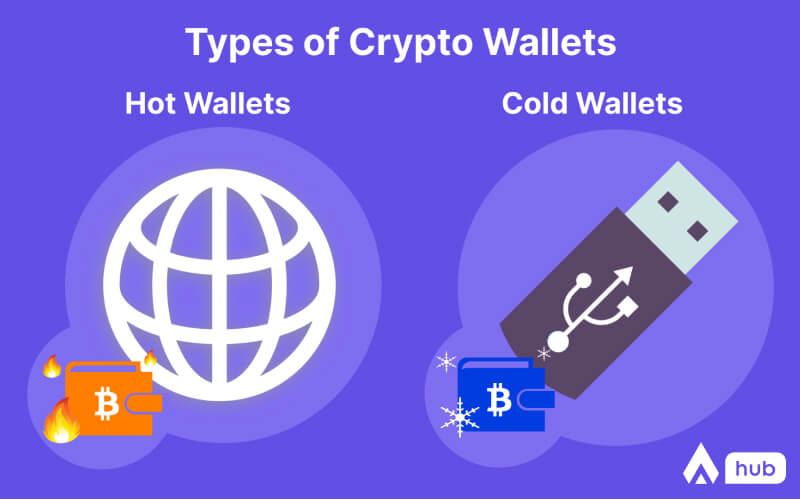
What is Self-Custody Crypto?
Self-custody crypto refers to the practice of managing and controlling your own cryptocurrency, rather than relying on a third-party platform or custodian. With self-custody, you have full ownership of your private keys and can securely store and manage your digital assets using a crypto wallet. This approach offers enhanced security and control over your funds but requires responsible management to prevent loss or theft.
Creating Your Crypto Wallet
Creating a crypto wallet involves setting up a secure storage solution for your crypto. This process allows you to manage, receive, and send cryptocurrencies like Bitcoin, Ethereum, and other digital currencies. You will need to choose between different types of wallets, each offering distinct features and security levels. For a deeper dive into managing your crypto assets securely, read our no KYC crypto wallets guide.
Steps Involved in Creating Your Crypto Wallet
Choose a wallet type based on your needs and security preferences
Download or purchase the wallet
Set up the wallet following the provider’s instructions
Securely store your recovery phrase or seed words
Transfer your crypto to your new self-custody wallet
Types of Crypto Wallets
Software Wallets: These are applications you can install on your computer or smartphone. They offer convenience but may be more vulnerable to online threats.
Hardware Wallets: Physical devices that store your private keys offline, providing enhanced security against hacking attempts.
Paper Wallets: A physical document containing your public and private keys, often in the form of QR codes.
Hot Wallets:
Hot wallets are connected to the internet and offer convenient access to your crypto for frequent cryptocurrency transfers. They are ideal for active trading and quick access.
Popular Hot Wallets:
MetaMask
MetaMask is a widely-used browser extension wallet that supports Ethereum and other EVM-compatible networks, allowing users to manage their crypto and interact with decentralized applications directly from their browser.
Phantom
Phantom is a user-friendly wallet designed for the Solana blockchain, offering an intuitive interface for managing Solana-based assets and interacting with the Solana ecosystem.
Rabby
Rabby is an advanced Ethereum wallet that provides enhanced features such as multi-chain support and improved security, catering to users who seek more control and customization for their Ethereum transactions.
Coinbase Wallet
Coinbase Wallet is a self-custody wallet developed by the Coinbase platform, allowing users to securely store a range of cryptocurrencies while seamlessly integrating with Coinbase’s platform.
Rainbow
Rainbow is a visually appealing and easy-to-use Ethereum wallet, designed to offer a fun and straightforward experience for managing Ethereum-based assets.
Keplr
Keplr is a specialized wallet for the Cosmos ecosystem, enabling users to manage and stake Cosmos-based assets with a focus on integration within the Cosmos network.
Backpack
Backpack is a versatile multi-chain wallet that supports a variety of blockchain networks, providing users with a flexible solution for managing diverse digital assets across multiple platforms.
Cold Wallets
Cold wallets are offline storage solutions providing enhanced security against online threats. They are ideal for long-term storage of digital asset.
Popular Cold Wallets:
Ledger
Ledger hardware wallets are known for their robust security features, offering offline storage to protect cryptocurrencies from online threats and unauthorized access.
Trezor
Trezor is a reputable brand of hardware wallets that provides secure offline storage for digital assets, combining ease of use with strong protection against cyber threats.
Peer-to-Peer (P2P) Trading
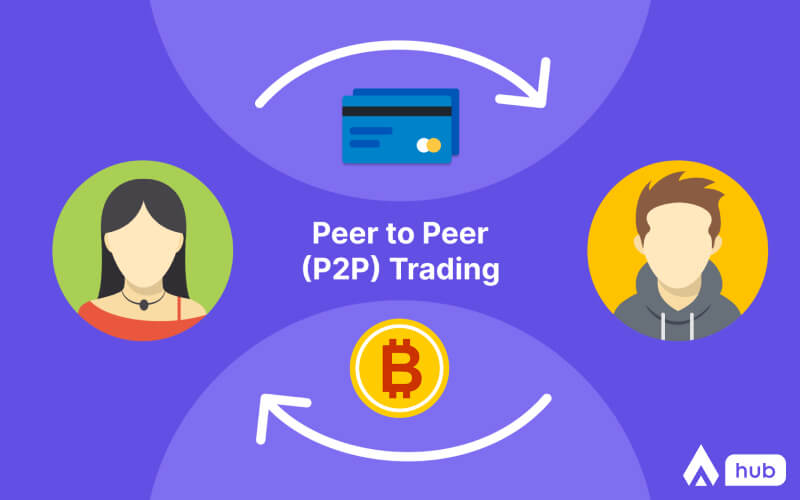
What is Peer-to-Peer Trading?
Peer-to-Peer (P2P) trade involves direct trade between individuals without the need for a centralized trade or intermediary. In P2P trade, buyers and sellers connect through a platform or marketplace that facilitates the transaction but does not hold the crypto. This method allows users to buy and sell cryptocurrencies like Bitcoin and Ethereum directly from each other, typically using a crypto wallet to complete the transaction. P2P trading platforms often provide escrow services to ensure that the trade is executed fairly.
Advantages of P2P Trading
P2P trade offers several benefits:
Lower Fees: By bypassing traditional trade platforms, users can often avoid high transaction fees associated with centralized platforms.
Flexibility: P2P platforms typically support a wide range of payment methods, including bank transfers, digital wallets, and even cash, catering to various user preferences.
Access to Global Markets: P2P trade allows users to connect with buyers and sellers worldwide, expanding their options beyond local markets.
Enhanced Privacy: Trades can be more private compared to centralized platforms, as users are not required to disclose personal information to a third party.
Warning and Disclaimer: Risks and Precautions
While P2P trade offers numerous advantages, it also comes with certain risks and precautions:
Fraud Risk: Without an intermediary to verify transactions, there is a higher risk of encountering fraudulent activity. Always use platforms with strong escrow and verification processes to mitigate this risk.
Lack of Regulation: P2P trade may not be subject to the same regulatory oversight as centralized exchanges, potentially exposing users to legal and financial risks. Ensure you understand the legal requirements and regulatory environment in your jurisdiction before engaging in P2P trade.
Security Concerns: Protect your crypto by using secure and reputable platforms. Be cautious of scams and phishing attempts, and never share sensitive information with unknown parties.
Always conduct thorough research and exercise caution when participating in P2P trade to ensure a safe and successful experience. To learn more about P2P trade and other arbitrage methods click here.
Earn Crypto
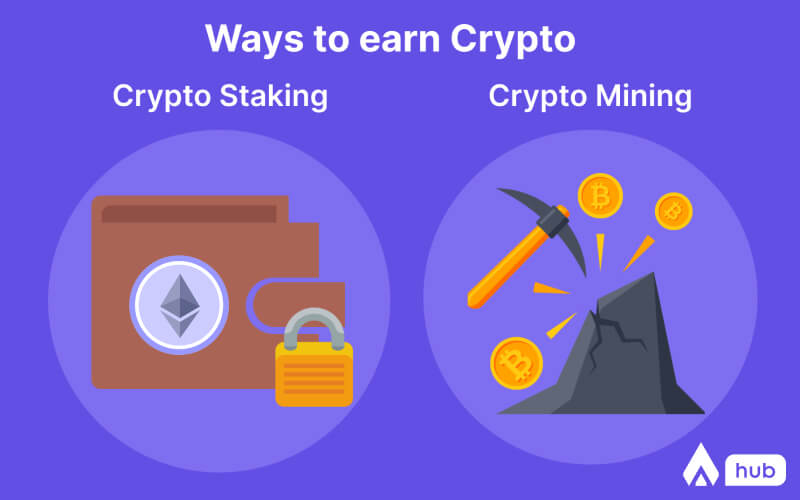
How to Earn Crypto (Contribute and Participate in the Ecosystem)
Earning cryptocurrency is an excellent way to get involved in the digital asset ecosystem and grow your portfolio. Here are several methods to earn crypto by contributing to and participating in the crypto space:
Staking: Many cryptocurrencies, including Ethereum, allow users to participate in staking. By locking up a certain amount of your crypto in a staking wallet, you contribute to the network’s security and operations. In return, you earn rewards in the form of additional cryptocurrency. This method not only supports the blockchain but also generates passive income.
Mining: Mining involves using computer hardware to solve complex mathematical problems, which validates transactions on a blockchain. Miners are rewarded with cryptocurrency for their efforts. While Bitcoin mining is highly competitive and requires substantial investment in hardware and electricity, other cryptocurrencies with different consensus algorithms may offer more accessible mining opportunities.
Yield Farming and Liquidity Provision: Yield farming involves providing liquidity to decentralized finance (DeFi) protocols in trading for rewards. By adding your crypto to a liquidity pool, you help facilitate trade on decentralized exchanges (DEXs) and earn interest or fees based on the amount of liquidity you provide.
Airdrops and Bounties: Occasionally, cryptocurrency projects distribute free tokens to holders of a specific cryptocurrency or to users who complete certain tasks, such as promoting the project or participating in surveys. These distributions, known as airdrops and bounties, can be an easy way to acquire new tokens.
Freelancing and Services: Some platforms and businesses pay for services or freelance work in cryptocurrency. If you have skills or expertise, you can offer your services for digital currency, providing a direct way to earn crypto while doing what you do best.
By exploring these methods, you can actively participate in the crypto ecosystem, earn crypto, and contribute to the growth and development of the blockchain space.
Selling Crypto for Fiat

How to Sell Crypto
Selling crypto involves converting your coins into currency or other cryptocurrencies. To initiate the process, you first need to select a platform where you can list your cryptocurrency for sale. This could be a centralized platform, a decentralized platform, or even a peer-to-peer (P2P) marketplace. Once you have chosen your platform, you will need to transfer your crypto to your account that supports the sale. After setting up your sell order, specify the amount and price at which you want to sell. The platform will match your order with buyers, and once the transaction is complete, you can withdraw the proceeds to your preferred payment method.
Selling Crypto for Fiat Currency
To sell crypto for currency, you typically need to use a crypto exchange platform that supports fiat money. After transferring your crypto to the exchange, navigate to the trading section and place a sell order for your desired cryptocurrency. Choose the currency you wish to receive, such as USD, EUR, or GBP, and finalize the sale. The exchange will handle the conversion and deposit the amount into your bank. You can then withdraw these funds to your account or other preferred methods of payment like debit cards or bank transfers.
Mention Local Tax Guidelines
When selling cryptocurrency for fiat, it is crucial to consider local tax guidelines. Cryptocurrency transactions are often subject to tax regulations, which can vary depending on your jurisdiction. In many regions, the sale of crypto is considered a taxable event, and you may need to report any capital gains or losses. Be sure to consult local tax laws and seek professional advice to ensure compliance with legal requirements. Accurate record-keeping of your transactions will help you manage tax obligations and avoid potential issues with tax authorities.
Disclaimer
We do not provide financial advice. The information shared in this blog is for educational purposes only and should not be considered as financial guidance. It is crucial to check local legal regulations and guidelines before engaging in any cryptocurrency transactions, as certain jurisdictions can vary significantly depending on your jurisdiction. Additionally, we encourage you to conduct your own research (DYOR) and consult with a financial advisor to make informed decisions about buying, selling, or managing cryptocurrencies. Always consider your financial situation and risk tolerance before proceeding with any investment.


Pingback: Top No KYC Crypto Wallets - Altorise Hub
Pingback: Best Crypto Investor Discord Server for 2024 - Altorise Hub
Pingback: Crypto Friendly Banks for Easy Transactions - Altorise Hub